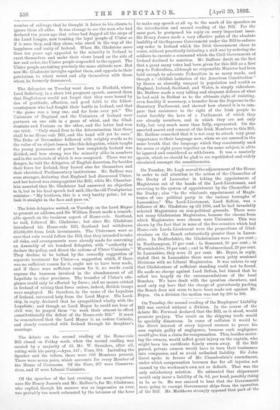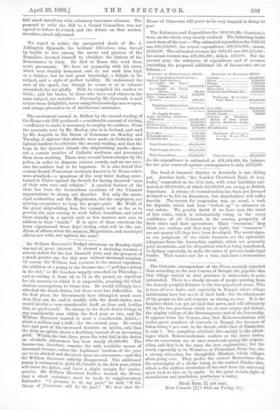On Tuesday, the second reading of the Employers' Liability Bill
was carried without a division. In the course of the debate Mr. Forwood declared that the Bill, as it stood, would promote perjury. The result on the shipping trade would be specially disastrous. In cases of collision it would be the direct interest of every injured seaman to prove his own captain guilty of negligence, because such negligence would give him a claim for compensation. This, besides mulct- ing the owners, would inflict great injury on the captain, who might have his certificate falsely sworn away. If the Bill passed, private owners would have to turn their businesses into companies, and so avoid unlimited liability. Sir John Gorst spoke in favour of Mr. Chamberlain's amendment, under which compensation becomes due for all injuries not caused by the workman's own act or default. That was the only satisfactory solution. He estimated that shipowners would only incur a liability of 3s. 6d. per head, possibly rising to 5s. or Os. He was amazed to hear that the Government were going to exempt Government ships from the operation of the Bill. Mr. Matthews strongly opposed that part of the Bill which interferes with voluntary insurance schemes. The proposal to refer the Bill to a Grand Committee was not agreed to before 12 o'clock, and the debate on that motion, therefore, stood adjourned.



















































 Previous page
Previous page